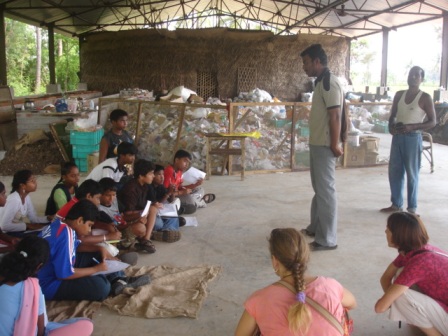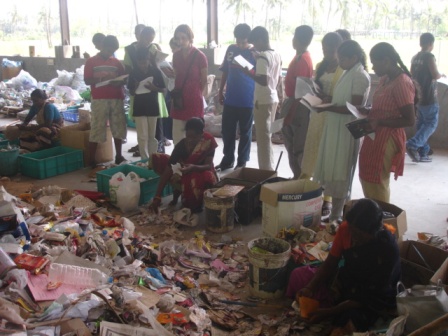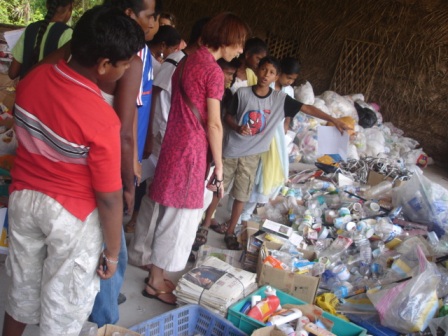PRESS NOTE
INAUGURATION OF SHUDDHAM’S “PARIVARTAN” COMPOSTING AND RECYCLING CENTER BY THE LT. GOVERNOR, PUDUCHERRY
At 11:00am on Tuesday 25 November 2008, Shri Govind Singh Gurjar, His Excellency the Lieutenant Governor of Puducherry, will inaugurate the opening of “Parivartan, Shuddham’s composting and recycling center for segregated solid waste collected from the Rajbhavan Ward in Pondicherry.
The following dignitaries will be in attendance for this auspicious event:
Hon’ble Minister Local Administration
Secretary, Local Administration
Managing Trustee, Sri Aurobindo Ashram
Director, Local Adminsitration
Chairperson Pondicherry Municipality
Chairperson, Vilianur Commune Panchayat
Commissioner Pondicherry Municipality
Commissioner Villiyanur Commune Panchayat
President Odianpet Village Panchayat
Councilor Odianpet Commune Panchayat
The inauguration will conclude with a tree-planting ceremony initiated by the Lt Governor.
The construction of Parivartan was funded by Direct Relief International, Santa Barbara, California. The land has been leased by the Sri Aurbindo Ashram.
Presently the residential and commercial solid waste in Pondicherry is disposed off in the only operational municipal dump yard at Karuvadikuppam or illegally dumped in the outskirts of town and around water bodies such as Ousteri Lake and Thengaithittu Lagoon. There is no treatment of solid waste done at the municipal dump; the waste is burned from time to time to make room for additional waste. This system of managing solid waste is a health hazard to the workers, the residents near the dumps, and all the citizens of Pondicherry, as the environment and natural resources are degraded through air pollution and toxic leaching into the soil and groundwater and vector-borne diseases are spread.
The government cannot solve this problem without the active involvement and collaboration of all sections of society; citizens, students, the business community, the media and NGOs.
About Shuddham:
Shuddham is a not-for profit, non-governmental organization based in Pondicherry. One of Shuddham’s objectives is to create a model neighbourhood where the government, citizens, students, and other stakeholders collaborate to keep the area clean. Over the past six years, Shuddham has worked to evolve an alternate system of waste disposal
Shuddham’s “zero-garbage” pilot program started with 80 houses and was inaugurated by the then Lt. Governor Rajini Rai in April 2002. This “zero-garbage” program entails the door-to-door collection of segregated household waste. The biodegradable waste is turned into compost and the recyclable items are further sorted and sent for recycling. The program has since grown in stages, first with the addition of 250 households in February 2003, then an addition of 700 households in September 2006. Today Shuddham manages over 16 kilometers of streets and 1,200 households in Rajbhavan ward, collecting a total of approximately 10 tons of “resource” a day.
The segregated waste collected in the Rajbhavan Ward will be taken to Parivartan, where the bio-degradable waste is composted (both ordinary and vermi-compost) and recyclable waste is further sorted. Prior to the construction of the 5,000 square foot recycling center, Shuddham operated the vermi-composting unit in a member’s yard and rented a small shed in Vaithikuppam for secondary sorting.
Shuddham is working with the Government to spread this “Beautiful Pondicherry” movement.
For additional information, please contact:
Ajit G. Reddy (Mobile no 9894092933)
Secretary, Shuddham
39 Rue Lally Tollendal
Pondcherry 605 001
Telephone: (413) 421-0032








